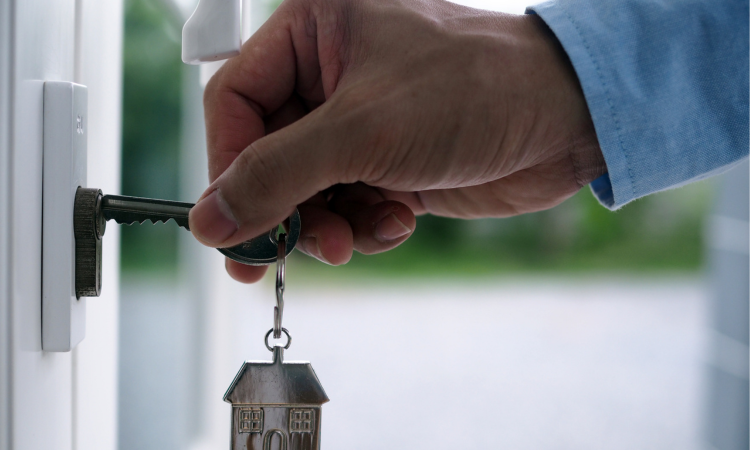Keyhole incontinence occurs when you can hold your urine until you reach the door, but then suddenly feel like you can't hold it in any longer. It can also happen when you get out of bed at night or in the morning to go to the toilet, or when you've just reached the toilet but haven't had time to pull down your pants and sit down. It takes you completely by surprise; before you could control your urine, but now you can't.
Keyhole incontinence is a form of urge incontinence characterized by the sudden need to empty your bladder when you put the key to your front door in the lock.
How to Treat Keyhole Incontinence
If you're struggling with diaper incontinence, you'll be happy to know that there are a number of things you can do to address the problem.
- Break the pattern . Instead of rushing to the bathroom as soon as you get home, get into the habit of holding it for a few minutes and waiting. Gradually increase the time so that your bladder can hold more fluid before it needs to be emptied. You can distract yourself to ignore the urge by making dinner, doing chores, watching TV, etc.
- Try bladder training. Bladder training is a form of behavioral therapy used with the help of a specially trained professional to treat incontinence.
- Strengthen your pelvic floor muscles . Pelvic floor exercises such as Kegels can be done at home, without a doctor's supervision. They help strengthen the pelvic floor and improve bladder function.
- Stay hydrated. Drinking plenty of water throughout the day and cutting back on bladder irritants like caffeine and alcohol can reduce your risk of urinary tract infections and bladder irritation, which can worsen urge incontinence.
- Medical Solutions . If lifestyle changes and bladder training aren’t enough, your doctor may recommend certain medications or surgery to treat urge incontinence.
How and why does this happen?
Your kidneys are constantly filtering blood and producing urine, so your bladder is always filling slowly. When your bladder fills up and reaches 200 ml, nerves send messages to your spinal cord that pressure is building. Those signals go to the brain, which then decides whether or not you need to hold your bladder.
When it's not a good time to pee — maybe you're in the middle of a meeting or there are no restrooms nearby — your brain tells your detrusor muscles to stretch to hold in more fluid and your urethral sphincters and pelvic floor muscles to squeeze to prevent unwanted urine leakage.
When it is a good time to go, your brain lets you know and you feel the urge to go. Once you are on the toilet, your brain tells your bladder to contract and your pelvic floor and sphincter muscles relax. You open your urethra and pee. Lovely release!
Normally, your brain and bladder work in harmony. With urge incontinence, the signals between your bladder, nerves, and brain get confused and your bladder contracts when it shouldn’t. This leads to involuntary urine leakage and that sudden “gotta-go-or-I’ll-pee-myself” feeling.
This is often caused by lifestyle factors such as smoking or drinking alcohol, physical factors such as menopause and childbirth, or behavioral factors such as holding your urine or going "just in case".



















